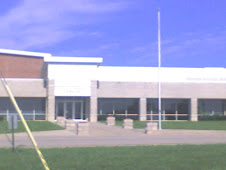Literacy and Web Applications
By Mirah Dow
The units of study required for earning graduate credit, 2007 Summer Institute for School Librarians, School of Library and Information Management, Emporia State University course (LI755A) are amazing. I have been reading each unit one-by-one as enrolled students send electronic files to me. Who says that school librarians only check out books? I beg to differ. If only school administrators and policy makers could see what I see this summer in completed units using the NTeQ Lesson Plan Template (Morrison & Lowther, 2002). They would know that fully licensed, professional teacher-librarains are essential to learning in today's schools.
It is clear that the time has come when it makes sense to contemplate the school library and the school, rather than the other way around: the school and the school’s library. After reading your units of study, it is clear that this fall when school begins, school librarians will be teaching literacy reading and writing in the context of content, research and technology. Information and technology literacy, independent learning, and social responsbility are key. Many school librarians have known this and acted on the reality that web applications are central to teaching and learning long before summer 2007.
I just read my new issue of Phi Delta Kappan (June, 2007). The issue is titled and devoted to “Making Tough Choices”. One article, “Technology: Web Applications and Google” (p. 727, 792), discusses the advantages and disadvantages of using software on the Web rather than on our computers. The article points out that the time has come to consider that computing is all about the network as the computer. Web applications are what it is all about.
“Will children in our schools have access to the Internet” becomes a new question when one considers the future of computing is all about the network as the computer. Until recently, we have wondered if all children and youth will have equal access to information. We worried less about whether or not they would have access to MS Office and fancy technology bells and whistles in various software programs. The time as come for us to know that before long, if you cannot get on the Internet, you cannot do your work. This reality points to even higher stakes when it comes to teaching information and technology literacy.
Do you get the picture? I think many school librarians do. For example, during 2007 Summer Institute, many of you brought your laptops and logged on to the Internet. While you were listening and learning, you were also using web applications and Google (and more). For example, one Institute participant showed me her own Google calendar of activities and how she uses it to involve all the teachers in her building in scheduling their use of the library and library resources. She said, “This is my life right here.”
I feel more compelled than ever to be involved in the next best technology application. If I can’t do it myself, how will I teach others? This has always been my mantra. However, for me, summer 2007 is the time that it can no longer be optional. The time may finally be here when it makes sense to consider using the Web for almost everything. What advantages and disadvantages must we anticipate?
Subscribe to:
Posts (Atom)

